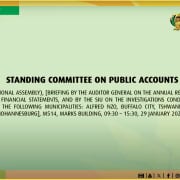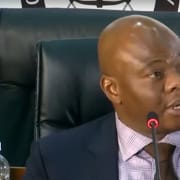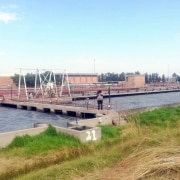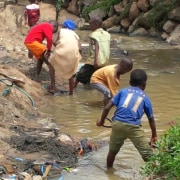|
Getting your Trinity Audio player ready...
|
Call for submissions in advance of visit by the UN special rapporteur on toxics and human rights to South Africa 31 July – 11 August 2023
Deadline – 20 June 2023
Mandate of the special rapporteur on toxics and human rights
Pursuant to Human Rights Council resolution 45/17, the UN special rapporteur on toxics and human rights, Marcos Orellana, will undertake a visit to South Africa from 31 July to 11 August 2023 at the invitation of the government. His visit will focus, in accordance with his mandate, on a wide range of issues related to toxics and human rights and the implications for human rights of the environmentally sound management and disposal of hazardous substances and wastes. A report on the visit including recommendations will be presented to the UN Human Rights Council in September 2024.
The special rapporteur is part of the Special Procedures mechanism of the UN Human Rights Council (UNHRC). The UNHRC is an inter-governmental body within the UN system, made up of 47 member states and responsible for the promotion and protection of all human rights around the globe. Special Procedures are independent experts who report and advise on human rights issues from a thematic or country-specific perspective. They are appointed by the UNHRC on the basis of their expertise and experience in the area of their mandate, personal integrity, independence, impartiality, and objectivity. They are not employed by the UN and do not receive remuneration for their work.
The mandate seeks to help states, businesses, and other stakeholders to adopt solutions with regard to the impact of harmful substances on human rights.
Marcos A. Orellana was appointed special rapporteur on toxics and human rights in August 2020. He is an expert in international law and the law on human rights and the environment. His practice as legal advisor has included work with United Nations agencies, governments and non-governmental organisations.
Objectives
Country visits allow the special rapporteur to examine in situ questions relating to the mandate, and would help him identify gaps and shortcomings, as well as good practices, in relation to which the special rapporteur would seek to make constructive and concrete recommendations.
The general objectives of such country visits are:
- to examine and report on the status of a wide range of issues related to toxics and human rights as well as the implications for human rights of the environmentally sound management and disposal of hazardous substances and wastes in the country, with particular attention to vulnerable categories;
- to engage in dialogue with all levels of government, UN and intergovernmental agencies, and civil society in their efforts to protect human rights;
- to identify gaps and shortcomings, as well as practical solutions and best practices in the realisation of rights relevant to the mandate;
- to issue recommendations addressed to governments, businesses and relevant stakeholders, and to follow up on relevant concluding observations made by treaty bodies and other international bodies and assess their impacts on policies adopted by the countries concerned.
Country visits involve extensive study of topics relevant to the mandate, including a wide range of issues related to toxics and human rights and the implications for human rights of the environmentally sound management and disposal of hazardous substances and wastes, as well as meetings and interviews with civil society organisations, experts and affected individuals before a visit. Country visits include meetings between the Special Rapporteur and government officials, members of the legislature and judiciary, state institutions, civil society organisations, academics, businesses, and individuals.
Key questions and types of input/comments sought
The special rapporteur would like to invite all interested individuals and organisations working on issues related to toxics and human rights and implications for human rights of the environmentally sound management and disposal of hazardous substances and wastes concerning South Africa, including representatives of civil society organisations, journalists, experts, and academics, to provide input for the preparation of his visit.
While all submissions are welcome, it would be greatly appreciated if the submissions can focus on one or more of the following thematic issues:
- Exposure to hazardous substances, and its causes and consequences, including for groups in vulnerable situations such as women, children, and people living in extreme poverty;
- Implementation of international chemicals and waste conventions, as well as international, regional and national human rights and environmental standards;
- Good practices: with a view to discussing, exchanging, sharing and transferring policy experiences and knowledge;
- Chemicals and hazardous wastes issues, such as mercury, , e-waste and asbestos, polychlorinated biphenyls (PCBs), Per- and poly-fluoroalkyl substances (PFASs), and other persistent organic pollutants, lead paint, and lead acid batteries;
- Solid waste management and facilities and related challenges in South Africa, including hazardous waste and plastics management;
- Assessment of port reception facilities for handling ship generated waste;
- The adverse effects of climate change, air quality and its effect on the enjoyment of human rights, including issues of coal combustion, energy efficiency and incineration;
- Current cases and issues with a view to the application of human rights standards, in particular regarding import and dumping of hazardous wastes, water bodies pollution, pesticides, and any other of relevance;
- Access to an effective remedy for harm caused by hazardous substances and wastes, with a specific focus on accountability and redress, particularly with regard to populations with specific vulnerabilities, such as children, women, older persons, workers and local communities, as well as people living in extreme poverty and other marginalised groups;
- Access to information, participation, and free, prior and informed consent;
- Other issues: any other matter of interest to the mandate.
Reports, academic studies and other types of background materials can be attached as an annex to the submission.
How inputs will be used
All inputs will be treated to inform the preparation of the visit and the report to the UNHRC.
Next steps
Please send your contributions in English in Word format to hrc-sr-toxicshr@un.org. Please indicate Submission for Special Rapporteur’s visit to South Africa in the email subject line; limit your contributions to a maximum of 2 500 words and if necessary, provide links to relevant documents or attach annexes.
Your submission should be sent by no later than 20 June 2023.
Useful contacts and links for organisations and representatives who wish to be in contact with the special rapporteur on toxics and human rights follow.
- E-mail: hrc-sr-toxicshr@un.org
- Follow the special rapporteur on Twitter: @SRtoxics
- OHCHR website of the special rapporteur on toxics and human rights
The special rapporteur on toxics and human rights thanks you for your valuable contribution.







